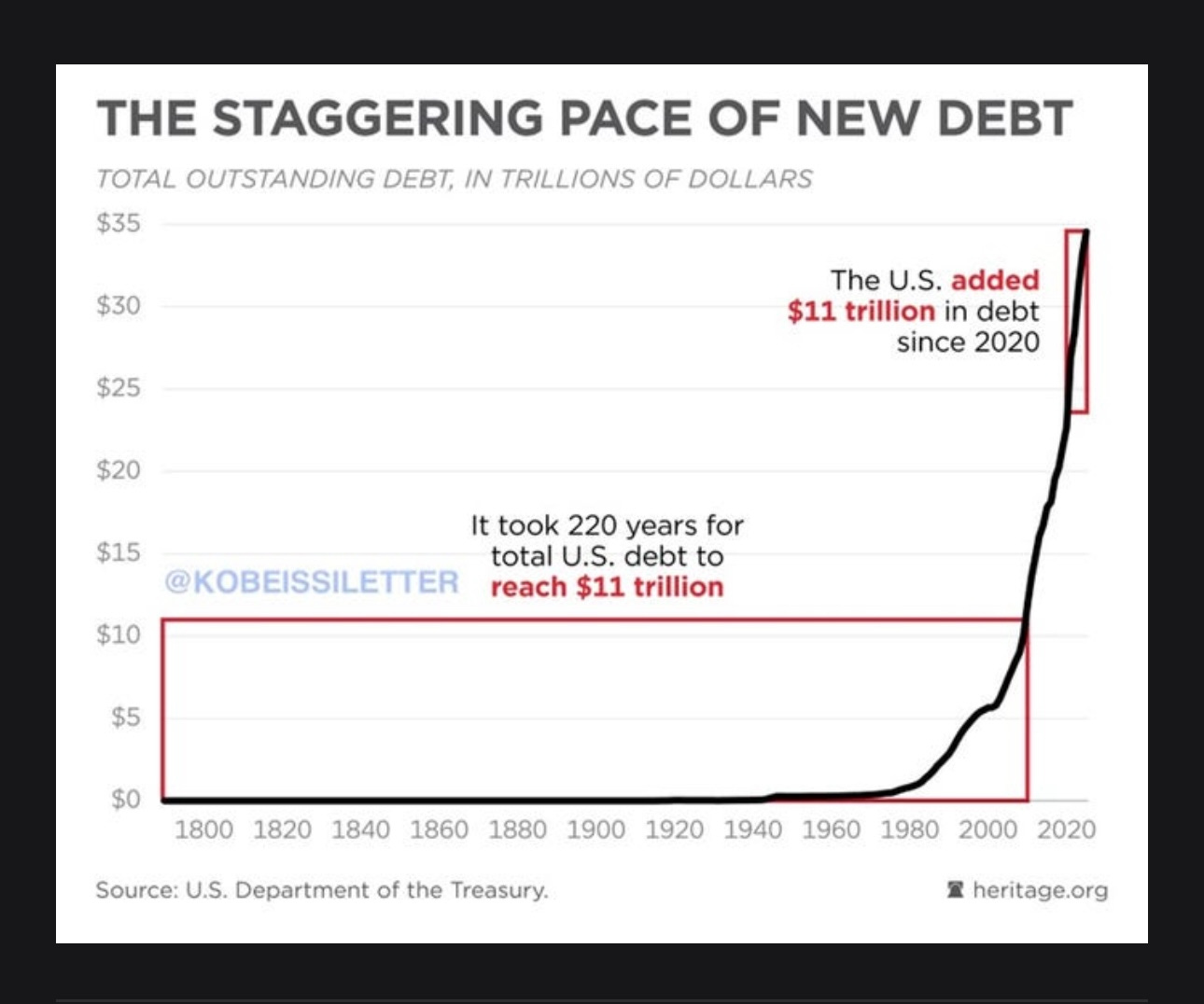1 Cost of student debt cancellation as high as $1.4 trillion
2 Campus protests escalate
3 ELECTION 2024 Biden has lowest approval since at least Eisenhower
4 Debt added since 2020 equivalent to all US debt added 1776-2009
5 Change Healthcare hack reverberates through US healthcare system
5/1/2011 Osama Bin Laden is killed by US Navy SEALS
see ad astra on x @greg_loving
1 Cost of student debt cancellation as high as $1.4 trillion
Including the Biden Administration’s new student debt cancellation plan, we estimate all recent student debt cancellation policies will cost a combined $870 billion to $1.4 trillion. That’s more than all federal spending on higher education over the nation’s entire history. The vast majority of this debt cancellation was put in place through executive actions under President Biden. $620 billion of debt cancellation has already been implemented, including $275 billion from President Biden’s new Income-Driven Repayment (IDR) program known as SAVE, $195 billion from cancelling interest as part of nearly 41 months of repayment pauses since March of 2020, and roughly $150 billion from a variety of more targeted actions such as discharging debt for those who attended closing schools and making it easier to cancel debt under existing loan forgiveness programs. The President’s newest debt cancellation scheme could cost an additional $250 to $750 billion based on our preliminary estimates.
To put $870 billion to $1.4 trillion in context, this range suggests the cost of recent debt cancellation is likely higher than:
All historic spending on higher education prior to the COVID-19 pandemic ($744 billion from 1962 to 2019)
All projected education appropriations over the next decade ($935 billion from 2025-2034)
The federal cost of offering universal pre-K and universal affordable child care ($750 billion)
The cost of tripling the Pell Grant program ($675 billion)
As we’ve explained before, most of these student debt cancellation policies have not only been costly, but also inflationary, poorly targeted, counter to the mission of lowering college costs, and not financially justified.
Committee for a Responsible Federal Budget
2 Campus protests escalate
Police entered Columbia University’s campus late Tuesday, where they removed pro-Palestinian demonstrators from an academic building they had occupied and from encampments on the school’s main plaza. The police actions, which came at the request of Columbia’s president, put an end to escalating protest actions that were increasingly disrupting life, work and studies at the Ivy League university.
Violent clashes erupted on Wednesday on the campus of the University of California in Los Angeles (UCLA) between pro-Palestinian protesters and a group of counter-demonstrators, according to live video coverage provided by a U.S. broadcaster. The UCLA student newspaper Daily Bruin said supporters of Israel had tried to tear down a pro-Palestinian protest encampment on the campus Police were responding to UCLA Chancellor Gene Block's request for support, Zach Seidl, Los Angeles Deputy Mayor of Communications, said on X
3 ELECTION 2024 Biden has lowest approval since at least Eisenhower
President Joe Biden averaged 38.7% job approval during his recently completed 13th quarter in office, which began on Jan. 20 and ended April 19. None of the other nine presidents elected to their first term since Dwight Eisenhower had a lower 13th-quarter average than Biden.
4 Debt added since 2020 equivalent to all debt added 1776-2009
@KobeissiLetter
5 Change Healthcare hack reverberates through US healthcare system
In early March, Joe Martin, the owner of Function Better, a physical therapy clinic in Yorkville, N.Y., looked at his business bank account and thought he’d been hacked. After more than 22 years in operation, Martin, an orthopedic clinical specialist, had a good sense of the revenue that came in the door each week, and so he was alarmed when his statement showed the account had been severely depleted. Martin hadn’t been hacked, but Change Healthcare—the clearinghouse that touches from one-third to one-half of all medical claims in America, including those submitted by Function Better’s billing firm—had been. Change processes a stunning $1.5 trillion in claims annually in the U.S. And the February ransomware attack on the subsidiary of United Healthcare, which has been described as “the most significant and consequential cyberattack on the U.S health-care system in American history,” has affected almost every corner of the industry. Seventy-four percent of hospitals reported in March direct impacts to patient care as a result of the cyberattack, and 94% said they felt financial impacts. And the hack is still snarling the health care system: As of April 3, 36% of physician practices reported a suspension in claims payments, while 32% said they were unable to submit claims for payment, a survey by the American Medical Association found. For those in smaller practices like Martin’s, the whole thing has been, in his words, a “catastrophe.”
News Items, Matt Murray
5/1/2011 Osama Bin Laden is killed in Abbottabad Pakistan by US Navy SEALS in Operation Neptune Spear
Thanks for reading!







